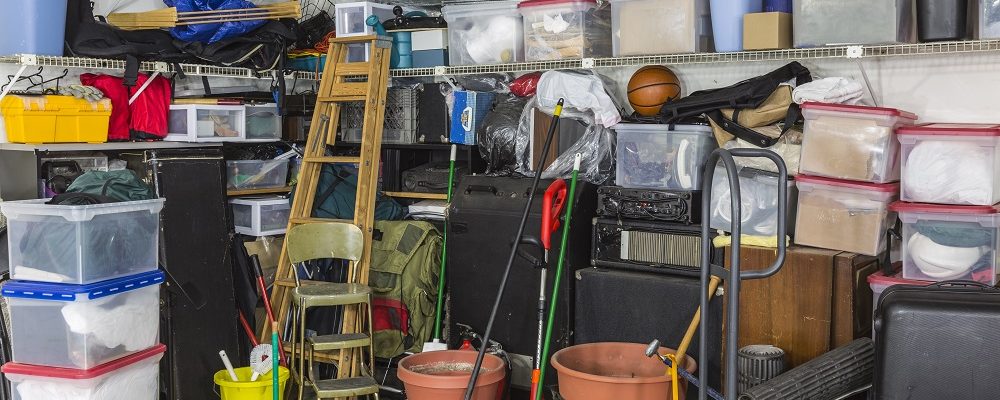We’ve been talking about ways to keep home and personal expenses straightforward through a myriad of cost-cutting strategies and smart money management. I now want to offer advice that’s not exactly related to money, but can nevertheless have an impact on a person’s finances: Keep your home free of clutter.
Just as a cluttered mind makes it difficult to focus on work, a cluttered home can make frugal living challenging. Unfortunately, it has become the norm to work hard and earn more to have more money to buy more things.
An early report from the LA Times proves this is true for many American families. The average US household has 300,000 things, ranging from a paperclip to a sock to a kitchen appliance. The number doesn’t say which percentage is non-essentials, but reports from other sources indicate that it is likely high.
– People wear only 20 percent of their clothes 80 percent of the time (Source: The National Association of Professional Organizers)
– Over 50,000 self-storage facilities are in business in the US (Source: CBS News)
– In 2011, US consumers spent $1.2 trillion on non-essential items (Source: Wall Street Journal)
So, how does a cluttered home get in the way of living frugally? This article shows you how.
A Cluttered Home Leads to Waste
 People who deal with clutter often end up buying three or more of the same thing. It’s because the more stuff you have at home, the harder it becomes to organize; and when your home’s disorderly, there’s a good chance that you end up “losing” things. It could lead to two things:
People who deal with clutter often end up buying three or more of the same thing. It’s because the more stuff you have at home, the harder it becomes to organize; and when your home’s disorderly, there’s a good chance that you end up “losing” things. It could lead to two things:
One, you’d keep buying things without realizing you might already have plenty of them, to begin with. Two, you’d use something once or twice, and then forget about it because you’ll no longer see it amidst the clutter.
When you’re not maximizing the things you spent good money for, then you’ll have wasted your money. Lost gift certificates, promo vouchers, and discount coupons are another example of money wasted due to disorganization. They offer legitimate savings which you miss out on.
The wasted opportunities to save is a direct result of clutter. You can’t maximize the items you bought. Homeowners who live in cluttered homes often buy something new, like a pack of razors or tissues, only to find out later they already had five of them somewhere that was missed in the mess.
Understand the Value of Space
Clutter takes up floor space, and in major cities where every square foot counts, the area you lose to clutter has an equivalent value.
 Consider that last year, the average price per square foot in Manhattan was $1,773. In San Francisco it’s $1,185; $751 in Boston, and $451 in Los Angeles. These are the rates you are paying for to store the clutter you keep at home if you live in any of these cities.
Consider that last year, the average price per square foot in Manhattan was $1,773. In San Francisco it’s $1,185; $751 in Boston, and $451 in Los Angeles. These are the rates you are paying for to store the clutter you keep at home if you live in any of these cities.
So, ask yourself: Where does your rent go every month? Towards the space you live in or for space to store things you don’t use? If you say you don’t waste rent on clutter because you keep the things that don’t fit in your house in storage, think again. The fact that you have to spend extra each month for storage should clue you in on how much you’re spending on non-essentials.
Time Wasted is Capital that’s Lost
It’s not just money that goes down the drain due to clutter. You also end up losing time.
The five to ten minutes you spend searching for your keys may not seem like much, but that could easily amount to an hour lost to senseless searching every week if it is a daily habit. You could have spent that time helping your spouse get the kids dressed up for school or watering your plants, for example.
If that demonstration of time lost doesn’t bother you, this one might.

Suppose you spend five to ten minutes looking for your keys still, and on some days, it causes you to arrive at work late. Your boss doesn’t tolerate tardiness, so you get a deduction on your salary based on the total number of minutes you were late. On top of that, your frequent tardiness could cost you a promotion or a pay appraisal.
It’s easy to avoid the financial repercussions of clutter, and I’m sure the answer is clear to you, too. Get rid of the things you don’t need, and by that I mean sell your non-essentials; give them to charity, or throw them out. Don’t clean your house only to keep them in another self-storage unit.
When your home is free of clutter, you save time, money, and spare yourself the stress that comes with messy surroundings.
For more tips on frugal living, read and subscribe to Revenue Loop.

